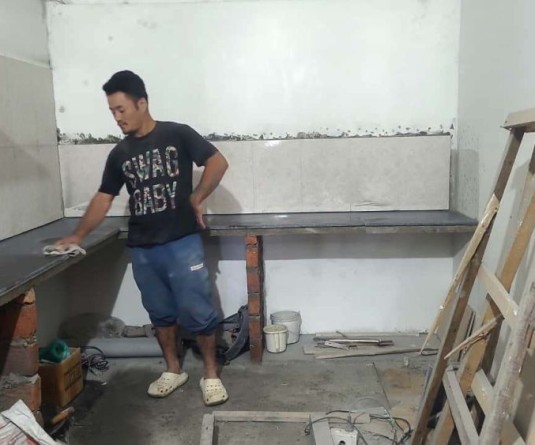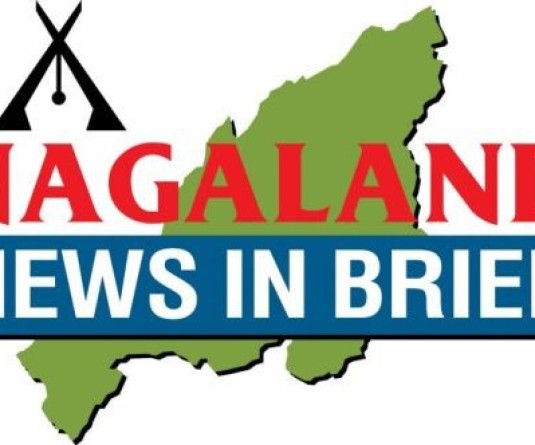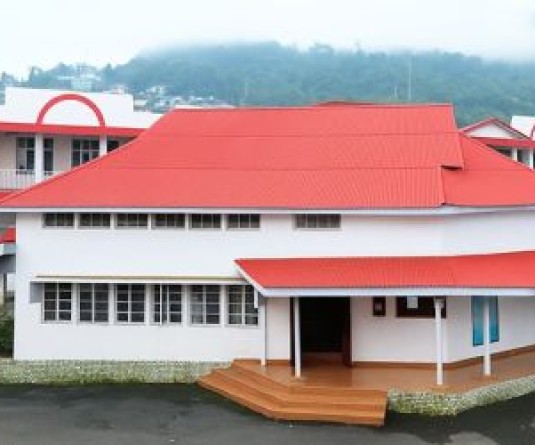
KOHIMA, APRIL 25 (DIPR): Taking forward the theme of ‘Accessible Elections’, the Nagaland Chief Election Office held a consultative meeting on ‘Inclusion of Persons with Disabilities (PwDs) in electoral process’ for devising a comprehensive strategy for the PwDs at Hotel Japfü here on April 25.
Chairing the meeting, CEO Nagaland Abhijit Sinha highlighted that despite several challenges, efforts were made in the recent election for providing easy accessibility for the PwDs.
“It is necessary to look at the consolidated picture of outcomes, good practices including innovations and technological support, the existing barriers and addressing those barriers. The consultation will start from the district level and consolidation will emerge as we move up to the national level,” the CEO stated.
He meanwhile acknowledged the DC & DEO Wokha for initiating the first of its kind polling station comprising 100% entirely of PwDs, besides more innovative steps. However, he expressed regret over the outdated survey data of the number of PwDs enrolled till date.
He urged the various departments, NGOs and other stakeholders engaged with PwDs to come up with innovative inputs and concrete points, for further proposal to the government.
Additional CEO, N Moa Aier meanwhile elaborated on Systematic Voters' Education and Electoral Participation (SVEEP) and electoral participation. He also urged persons with disabilities to take active part in the electioneering process.
Deputy Mission Director, SSA, L Khukiye Sema highlighted some of the consolidated statements of schools with and without barrier free access under SSA. He informed that 2066 schools, including higher secondary, are availing facilities like ramps, water, toilet, electricity facilities etc.
State Disability Commissioner, Dr. Atha Vizol emphasized on the facilities, provisions, aid and appliances, fund constraints, scholarships and monthly pensions for the PwDs.
DC & DEO, Wokha, Manazir Jeelani Samoon presented a slide show on the last election and pointed to Wokha district’s 100% PwDs polling station. “With the motto ‘No voters to be left behind’ in which all categories of voters have to be engaged in electoral participation, the inclusion of persons with disabilities is an important focus area,” he stated.
Meanwhile, Christina from the Deaf Ministry emphasized on the importance of sign language and explained the hardship faced by them in communicating, which is a major barrier for them to socialize.
State Icon for PwDs, Diethono Nakhro in her suggestion for better inclusion of persons with disabilities in the electoral process stated that the CEO/DEO websites must strictly comply with Web Content Accessibility Guidelines (WCAG) 2.0 – Level AA by the W3C; all documents/circulars, audio visuals, apps, etc, concerning election/voter matters need to meet accessibility standards; and Voter Facilitation Centres need to be in accessible formats.
Assistants/scribes for filling up forms for persons with disabilities should also be considered, she suggested, adding that besides Braille script and sign language, multi-media accessible awareness material on election process needs to incorporate captions (text versions) as well.
Nakhro also called for more special camps for enrolment and sensitisation of PwDs, while adding training of all personnel involved in the process needs to be stepped up. “There should be better collaboration with non-partisan disability experts, Disabled People’s Organisations, and NGOs and individuals in the disability sector for proper training of concerned personnel and to help with registration,” she said.
Other suggestions included voter ID cards in Braille for people who are blind or have low vision; engagement of dedicated teams of volunteers such as NCC, Guides & Scouts, youth organisations, etc, to assist voters with disability or senior citizens on polling day; training of all polling booth officials; absentee voting/online voting; directive for political parties to make their campaign materials and venues accessible; separate budget for raising awareness on accessible electoral process; and penalisation of officials who do not follow accessibility guidelines.






